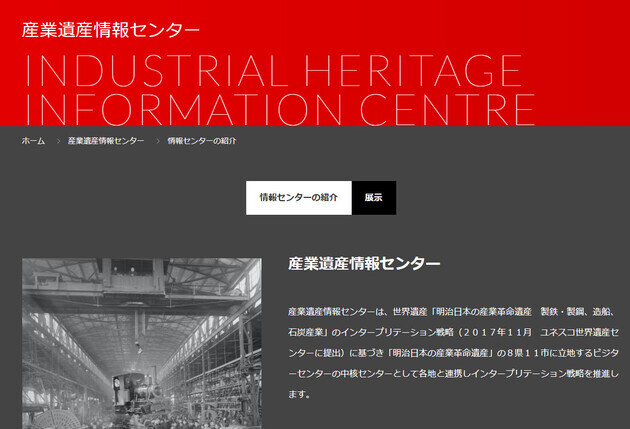hankyoreh
Links to other country sites 다른 나라 사이트 링크
UNESCO adopts resolution to condemn Japan’s failure to acknowledge Korean victims of wartime forced labor at Hashima Island

UNESCO’s World Heritage Committee on Thursday adopted a resolution stating that Japan failed to implement the recommended follow-up measures to acknowledge the Korean victims of wartime forced labor when registering its early modern industrial facilities as a UNESCO World Heritage Site, according to South Korea’s Ministry of Foreign Affairs (MOFA).
The resolution, adopted in UNESCO’s 44th meeting, is identical to the one posted on the website of the World Heritage Centre on July 12. The UNESCO committee said it “strongly regrets” Japan’s failure to implement the recommendation it made when registering 23 industrial sites on the World Heritage list in 2015 — namely, that Japan adopt an “interpretive strategy” that would tell the complete history of those sites, including the fact that Koreans were drafted for forced labor there.
When Hashima Island — also known as Battleship Island, in Nagasaki Prefecture — and other industrial facilities were registered on the World Heritage list six years ago, Japan acknowledged that Koreans had been drafted “against their will” and “forced to work” there. But the Industrial Heritage Information Center, which opened in Tokyo in June 2020, has been widely criticized for only exhibiting documents and testimony that deny the fact of Koreans’ forced labor.
After that, a team of three World Heritage experts wrote a 60-page report about their in-person visit to the Tokyo center and an inspection of its website. The experts concluded that the center didn’t adequately cover the complete history of the various facilities.
MOFA noted that UNESCO’s resolution specified that “a large number of Koreans and others [were] brought against their will and forced to work under harsh conditions” and called for “appropriate measures to remember the victims.”
Former Japanese UNESCO Ambassador Kuni Sato made remarks to that effect when the industrial sites were added to the World Heritage list in July 2015. Her admission previously appeared in a footnote but now appears in the body of the resolution for the first time.
This session of the World Heritage Committee, which is being held virtually, will run from July 16 to 31. More than 1,300 people are taking part, including delegations from the 21 countries on the committee.
By Kim Ji-eun, staff reporter
Please direct comments or questions to [english@hani.co.kr]

Editorial・opinion
![[Column] Season 2 of special prosecutor probe may be coming to Korea soon [Column] Season 2 of special prosecutor probe may be coming to Korea soon](https://flexible.img.hani.co.kr/flexible/normal/500/300/imgdb/original/2024/0426/3317141030699447.jpg) [Column] Season 2 of special prosecutor probe may be coming to Korea soon
[Column] Season 2 of special prosecutor probe may be coming to Korea soon![[Column] Park Geun-hye déjà vu in Yoon Suk-yeol [Column] Park Geun-hye déjà vu in Yoon Suk-yeol](https://flexible.img.hani.co.kr/flexible/normal/500/300/imgdb/original/2024/0424/651713945113788.jpg) [Column] Park Geun-hye déjà vu in Yoon Suk-yeol
[Column] Park Geun-hye déjà vu in Yoon Suk-yeol- [Editorial] New weight of N. Korea’s nuclear threats makes dialogue all the more urgent
- [Guest essay] The real reason Korea’s new right wants to dub Rhee a founding father
- [Column] ‘Choson’: Is it time we start referring to N. Korea in its own terms?
- [Editorial] Japan’s rewriting of history with Korea has gone too far
- [Column] The president’s questionable capacity for dialogue
- [Column] Are chaebol firms just pizza pies for families to divvy up as they please?
- [Column] Has Korea, too, crossed the Rubicon on China?
- [Correspondent’s column] In Japan’s alliance with US, echoes of its past alliances with UK
Most viewed articles
- 1After election rout, Yoon’s left with 3 choices for dealing with the opposition
- 2Two factors that’ll decide if Korea’s economy keeps on its upward trend
- 3Noting shared ‘values,’ Korea hints at passport-free travel with Japan
- 4AI is catching up with humans at a ‘shocking’ rate
- 5Why Kim Jong-un is scrapping the term ‘Day of the Sun’ and toning down fanfare for predecessors
- 6South Korea officially an aged society just 17 years after becoming aging society
- 7Korea’s 1.3% growth in Q1 signals ‘textbook’ return to growth, says government
- 8Value of Korean won down 7.3% in 2024, a steeper plunge than during 2008 crisis
- 9‘We must say no’: Seoul defense chief on Korean, USFK involvement in hypothetical Taiwan crisis
- 10Is Japan about to snatch control of Line messenger from Korea’s Naver?